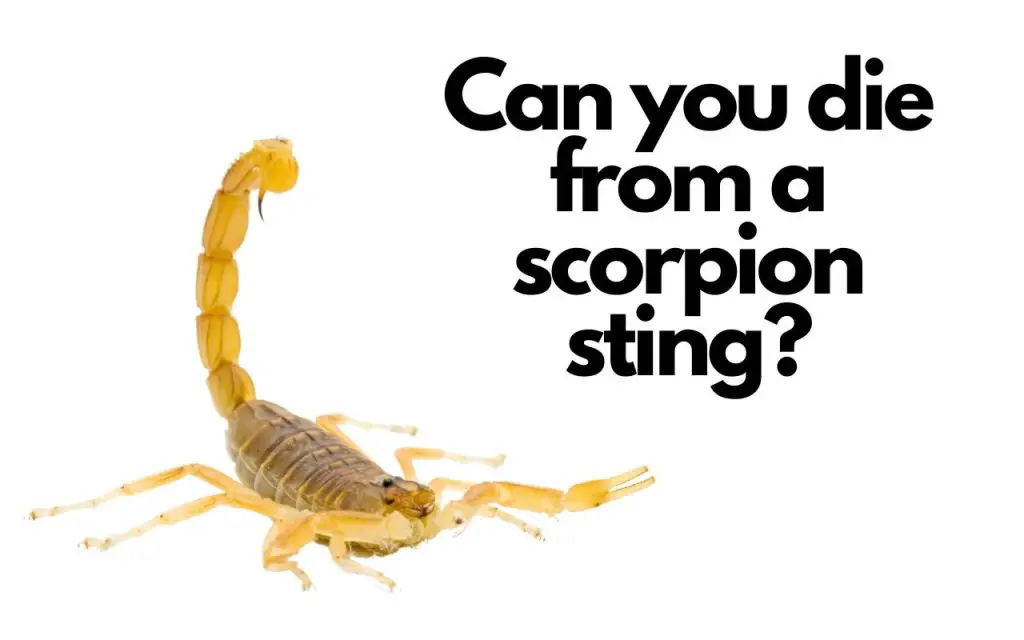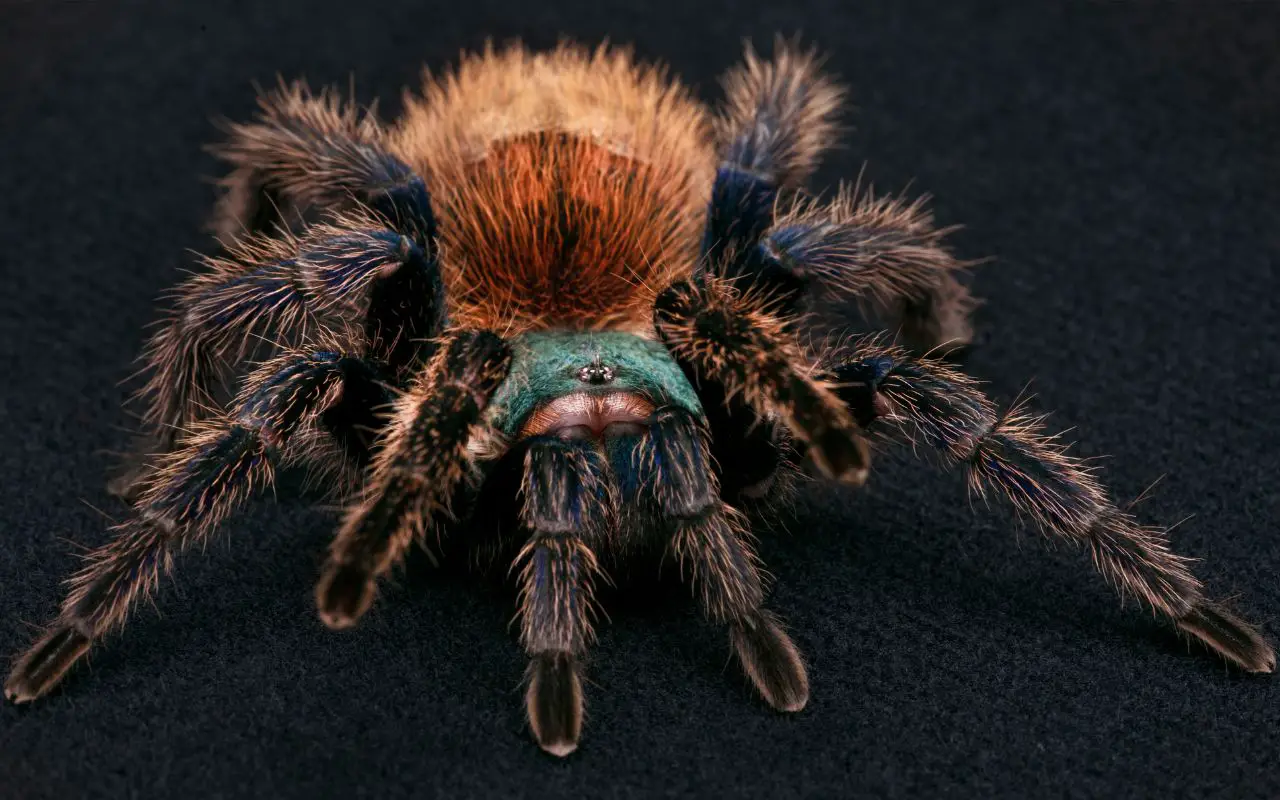As someone who has kept scorpions on and off since I was about twelve, I’ve often been asked, “Can you die from a scorpion sting?” Well, not from any of the species I keep, I’m too clumsy to keep anything really risky. There are a few species around the world that can kill you though.
In this post we’ll take a look at those species, but also try to dispel a few myths about what to do in case of a sting. How ever many myths I hear about, I’m still of the opinion that nothing can replace medical attention! Keep reading to learn more…
Scorpion Species Which Have Caused Fatalities
It’s critical to note that out of the over 2,000 species of scorpions known to science, only about 25 have venom strong enough to cause severe harm to humans, let alone death.
Bizarrely, some of these species rarely kill, but regularly cause unusual side effects like kidney damage or even pancreatitis.
Here’s a quick table of the top five most deadly species (in my opinion). In case you’re wondering, the Indian Red Scorpion arguably has the strongest venom, but I didn’t include it here because of how rarely it actually stings people!
Instead, I’ve listed the species which are most often involved in serious or fatal incidents:
| Scorpion Species | Geographic Distribution | Notable Characteristics |
| Arizona Bark Scorpion (Centruroides sculpturatus) | USA, mainly Arizona | Notoriously venomous, it’s a small, light-brown scorpion. |
| Deathstalker (Leiurus quinquestriatus) | Middle East and North Africa | Recognized by its yellow-brown color and darker tail tip. |
| Yellow Fat-Tailed Scorpion (Androctonus australis) | North Africa and the Middle East | Known for its fat tail and yellow coloration. |
| Arabian Fat-Tailed Scorpion (Androctonus crassicauda) | North Africa, Turkey, and the Middle East | Known for its fat tail and black coloration. |
| Brazilian Yellow Scorpion (Tityus serrulatus) | Brazil and adjacent parts of South America | Very long, slender pincers. |
For more information on these species, check out my article: The 5 Most Dangerous Scorpion Species
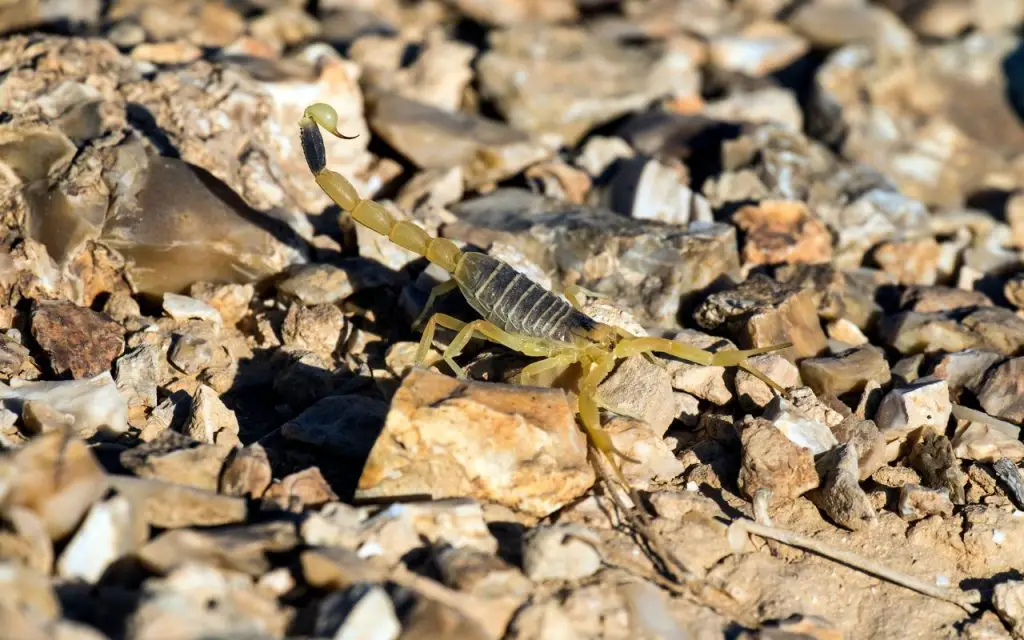
How Long Does a Scorpion Sting Last?
A scorpion sting’s effects vary widely based on the species and the individual’s immune response. Typically, localized pain and symptoms can last anywhere from a few hours to a few days.
How to Neutralize a Scorpion Sting
In case of a sting, the first step should always be to remain calm. Rapid heartbeat can speed up the spread of venom. Clean the area with soap and water, then apply a cool compress to reduce swelling. Medical attention is a must – even if you think it was a non-venomous scorpion, it’s better to be safe than sorry.
Onion for Scorpion Sting
This might come as a surprise, but in some traditional cultures, an onion poultice is used as a home remedy for a scorpion sting. While there’s limited scientific evidence backing this, it’s believed that the anti-inflammatory properties of onions can alleviate symptoms.
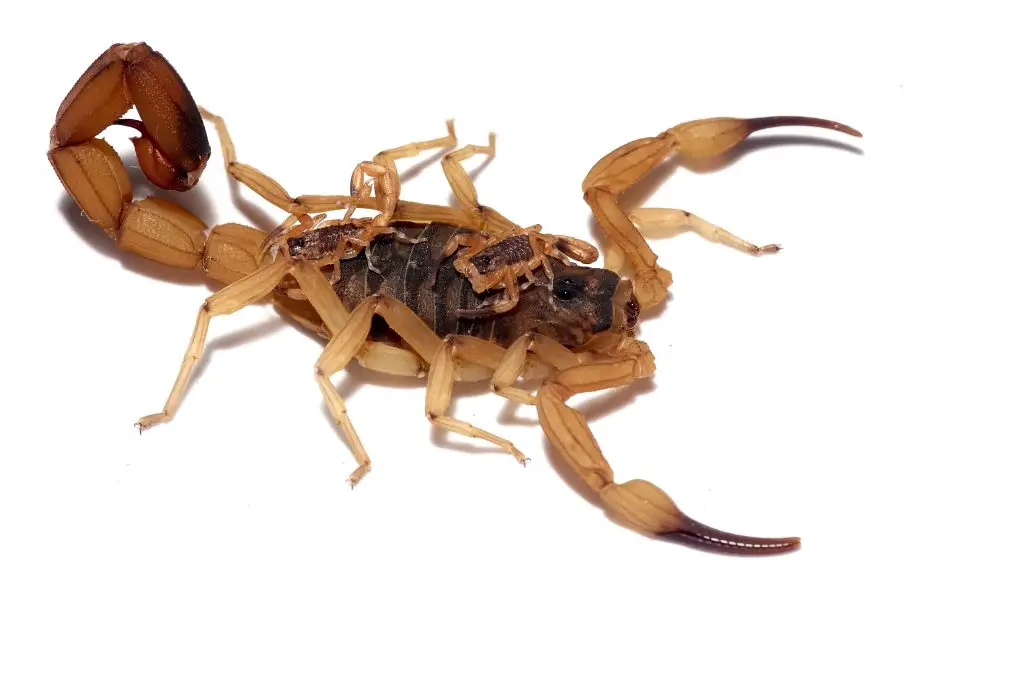
Baby Scorpion Sting
A common misconception is that baby scorpions are more venomous than adults. While their venom is the same, they might release all their venom at once because they haven’t yet learned to control their venom flow.
Why Drink Milk After a Scorpion Sting?
Drinking milk after a scorpion sting is another cultural belief, primarily in rural areas. The idea is that milk’s fat content might help absorb and neutralize the venom. However, this is not scientifically proven and should not replace seeking immediate medical attention.
How Long Does Scorpion Sting Numbness Last?
The numbness from a scorpion sting, particularly from species like the bark scorpion, may last from several hours to a couple of days. It’s essential to monitor the numbness as prolonged effects may suggest complications and necessitate medical intervention.
How to Tell if a Scorpion is Venomous
Venomous scorpions typically have smaller pincers and larger tails, where their venom glands are located. However, there are exceptions, so it’s best to avoid all scorpions unless you’re a trained professional.
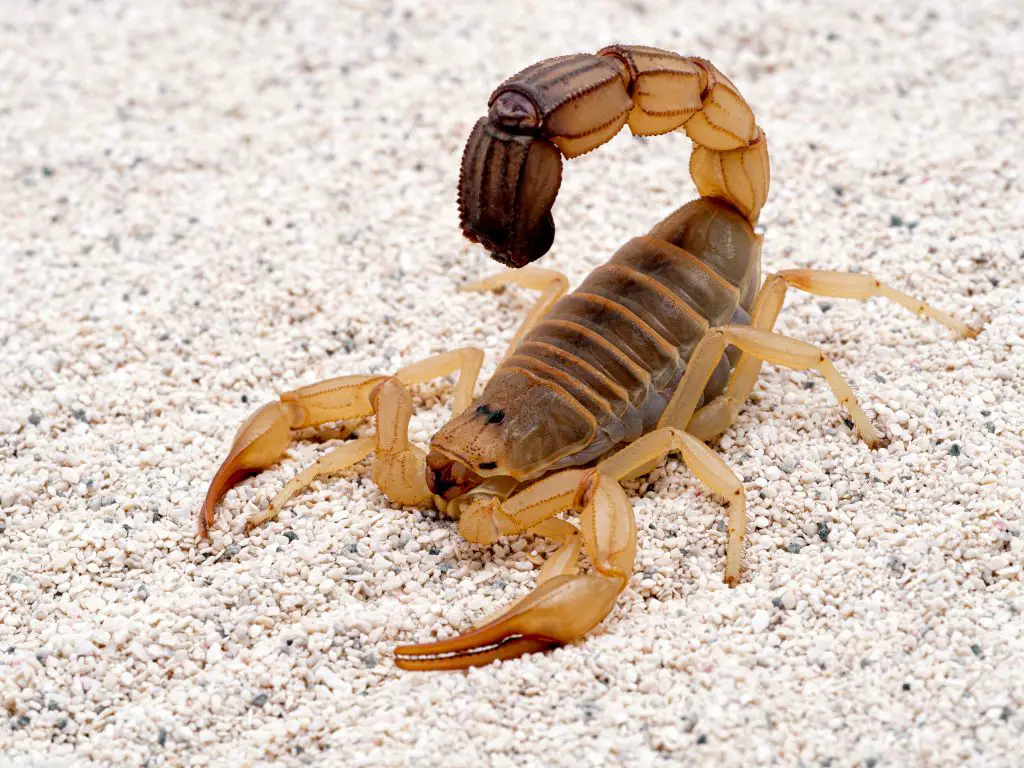
How to Avoid Being Stung
Avoiding a scorpion sting involves precautionary measures such as:
- Regularly checking and cleaning your shoes and clothes, especially when in scorpion-prone areas.
- Keeping your home and surroundings clean to deter scorpion habitats.
- Wearing gloves and long sleeves while gardening or handling debris.
- Being cautious and aware when in the wilderness.
If you live in an area with scorpions, be particularly careful doing yard work. Approach any chore which involves moving logs or rocks with adequate caution, and wear gloves at all times.
Can you die from a scorpion sting? Final thoughts…
So, can you die from a scorpion sting? The answer is yes, but it’s highly unlikely unless you’re dealing with one of the few deadly species, and you don’t seek medical attention promptly. As an arachnid enthusiast, it’s thrilling to study these creatures, but it’s equally important to understand their potential dangers and to treat them with respect. Remember, knowledge and awareness are your best tools for staying safe!
The truth of the matter is that most scorpions have relatively mild venom, and aren’t capable of doing real harm to humans. Nonetheless, you should take any bug bite or sting seriously – people can and do die from allergic reactions to supposedly “harmless” creatures.
If you get stung by anything and gets hives, a rash, redness, facial swelling, dizziness, or difficulty breathing, call the emergency services without delay.
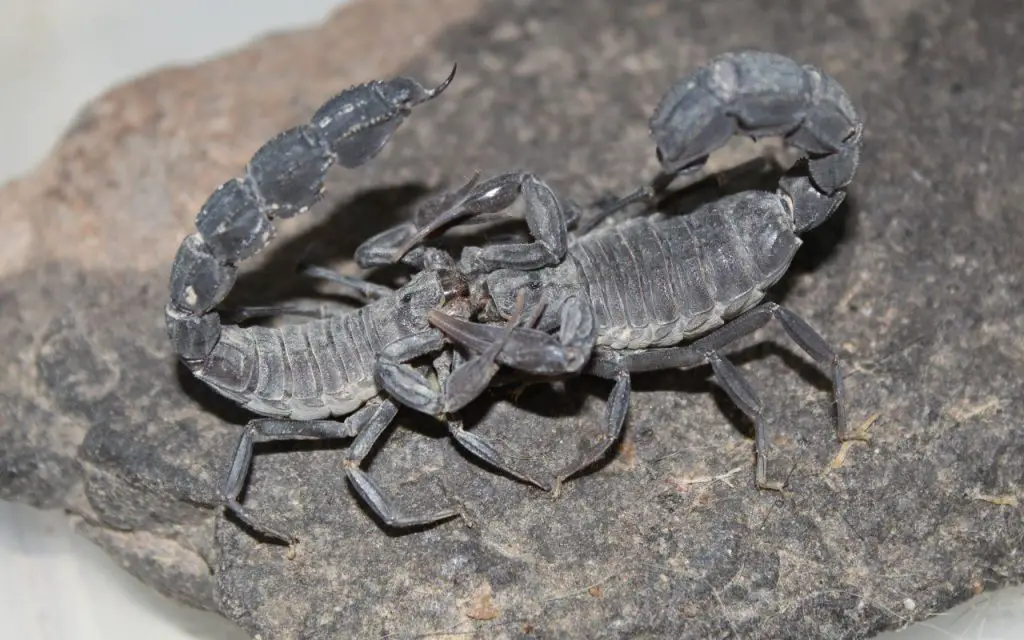
Can a human survive a scorpion sting?
Humans can and do survive scorpion stings all the time. In fact, the vast majority of scorpions have mild venom, and avoid humans as much as they can. Nonetheless, you should always take it seriously if you are stung, and seek medical attention.
What happens if you get stung by a scorpion?
What happens when you get stung by a scorpion depends on the species in question. An Emperor Scorpion, for example, might only produce a reaction similar to that of a bee sting. Species with more potent venom, on the other hand, can cause severe pain, dizziness, pancreatitis, kidney failure, nervous system failure, and even death.
What are the chances of surviving a scorpion sting?
Your chances of surviving a scorpion sting are extremely high if you seek medical treatment as soon as you’re stung. The key with any potentially serious envenomation is to just seek help straight away – don’t think “I’ll wait and see what happens”.
Do you have to go to the hospital for a scorpion sting?
You may have to go to the hospital for a scorpion sting. This is because scorpions can be hard to identify, and your doctor may not be able to tell which species stung you just from your description. Even if you are stung by a harmless species, doctors may need to monitor you for a certain amount of time to be sure.

